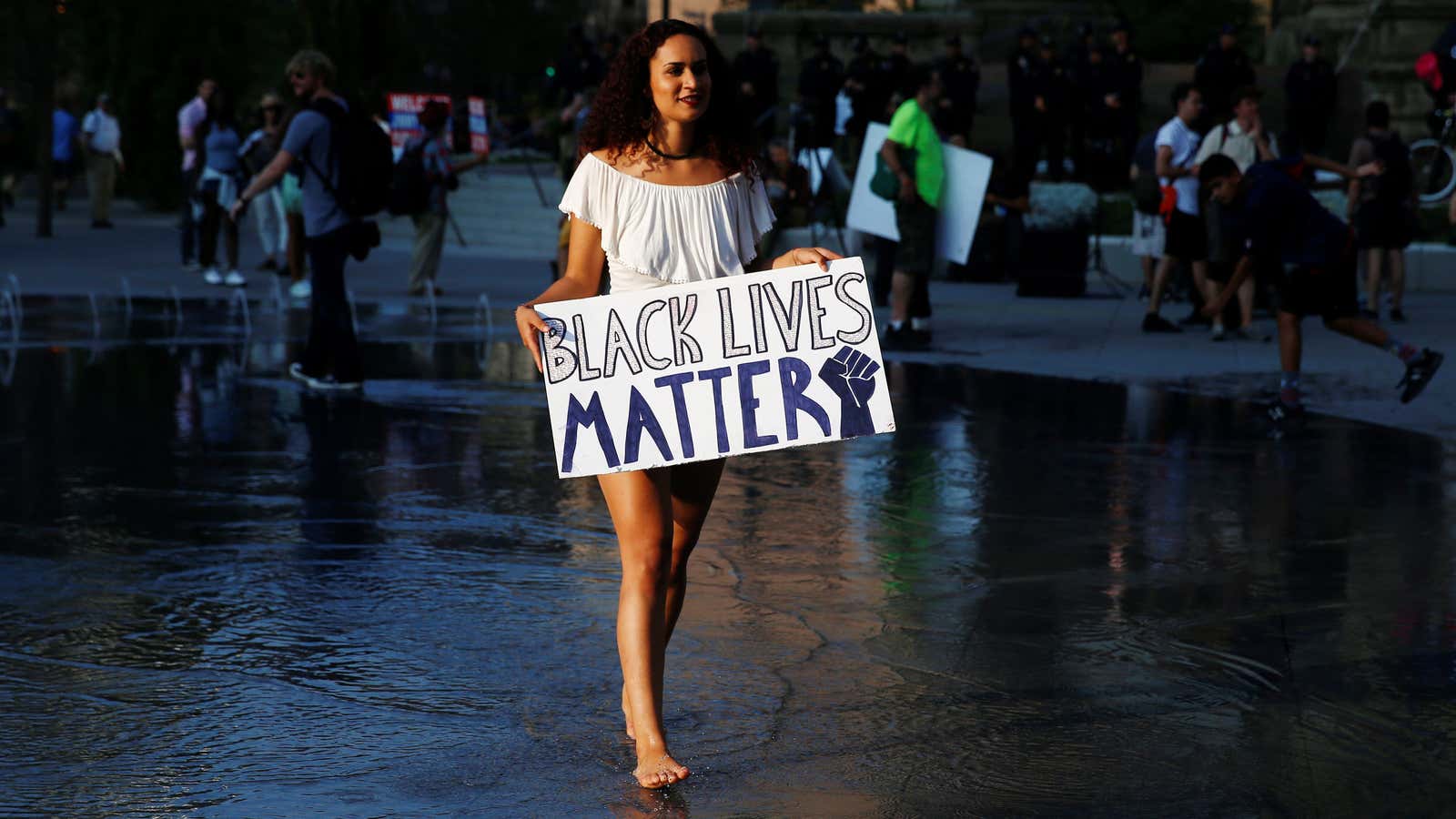This week, the prestigious Journal of Political Philosophy published a series of articles under the heading “Black Lives Matter.” One problem: All the authors published in the series are white.
It gets worse. The journal hasn’t published a single article on the philosophy of race since the Black Lives Matter movement began five years ago. Yale philosophy processor Chris Lebron pointed this out in an open letter to the journal on the “symposium” (a group of papers originally presented at a conference). “Voting, elections, immigration, global markets, and animals have gotten their time in the journal’s sun,” he wrote. But “the journal has failed to represent race in its pages.”
And it gets still worse. The editors of the Journal of Political Philosophy have also not deigned to feature a single black philosopher in its pages over the past five years. As Lebron (who is moving to John Hopkins this summer) wrote: “So far as I can tell, not one black philosopher has seen her or his work appear in the pages of your respected journal, on race or any other topic.”
This failure cannot be ascribed to the lack of black philosophers working on either Black Lives Matter or other areas of political philosophy. As Melvin Rogers, political science and African American studies professor at UCLA writes in his own open letter, there are prominent non-white professors at Harvard, Yale, Princeton, Barnard, Michigan, and plenty of other universities who are “positioned to easily say something meaningful about the [Black Lives Matter] movement and its connection to substantive normative issues.” Lebron himself, for example, has recently published a book on the philosophical foundations of Black Lives Matter.
The journal’s decision not include any black philosophers in this symposium is not just a failure to be diverse and inclusive, but also a moral and intellectual failure.
“What is so deflating about the journal’s misstep here,” Lebron wrote, “is that this contribution to the historical record is in fact a kind of replaying of history that the movement for black lives has dedicated itself to eliminating from a society struggling to be decent—the erasure of black presence when and where it counts and is needed.”
The editors of the journal say they’ve recognized their mistake and plan to add “at least” two African American scholars to their editorial board, and will work harder to feature work from non-white academics. “We have learnt important lessons here and will do our utmost to avoid such oversights and errors in the future and to be more sensitive in the manner we encourage, curate, frame and present work that engages with issues of grievous and persistent injustice,” they wrote.
But the issue also reflects broader concerns that philosophy as a field is too deeply embedded in its white, male cannon, and is struggling to innovate and remain relevant today. In the past month, US philosophers have been fiercely debating a newly-published article on transracialism in Hypatia journal, which evaluates whether the idea has merits similar to transgender rights. Hundreds of academics complained that the author failed to properly engage with transgender or non-white scholarship on the subject; members of Hypatia’s Board of Associated Editors apologized for the article and said it shouldn’t have been published; and there was a massive backlash to this criticism.
In other words: A journal published questionable scholarship on a nuanced topic; those who were upset demanded censorship rather than rebuttal; and the journal was utterly ham-fisted in its response to the complaints.
Such debates in academic philosophy may seem obscure, but in the past great philosophical ideas have had impact far beyond university walls, and shaped our entire world. With glaring problems in the philosophical discourse on race and gender, apparently the rest of us will have to look elsewhere for guidance.
Correction: Hypatia’s associate editors apologized for the article on transracialism but did not immediately retract it, as previously stated.
